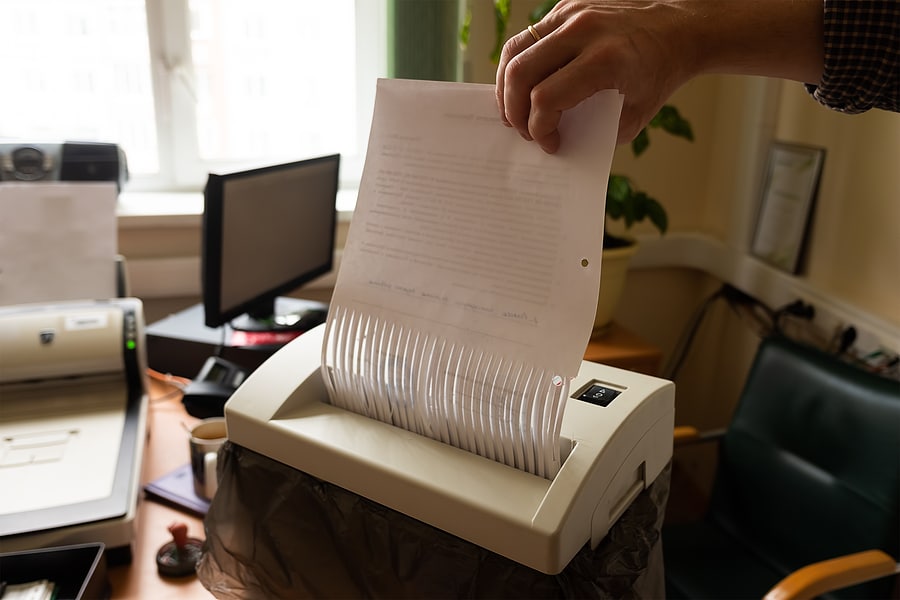Why Every Business Needs a Paper Shredding Strategy for Remote Employees

Since the beginning of the COVID-19 pandemic, an increasing number of companies have begun to offer remote work to their employees. Though it provides significant benefits to both business owners and their workers, one concern that many managers have is the security of business information.
In a traditional office space, managers can reasonably control sensitive documents by providing space to store essential paper files, such as locked filing cabinets. Remote work, on the other hand, leads to less direct control, as employees may not realize the gravity of protecting critical data such as the personal information of fellow employees and sensitive details about customers or vendors.
Remote workers might not use the same level of discretion to protect data that a company would, and organizations can face significant legal and financial risks should their data fall into the wrong hands. For instance, documents containing employee details like Social Security Numbers and addresses can result in identity theft. Similarly, documents concerning a customer may include their payment information, such as their bank account details.
With all of this being said, business owners who allow their employees to work remotely should implement a paper shredding strategy that reduces the risk of data loss and theft.
Consider Scanning and Shredding
Rather than allowing employees to keep paper copies of essential documents, it makes sense to implement a proper scanning policy. The employee will automatically scan paper documents into specific data files, then shred the paper document. Scanning allows workers to retain the information they’ll need to refer to in the future in their regular duties without having to look after physical copies.
Dispose of One-Time Use Documents
Employees often use paper to take notes when working remotely. For instance, they may jot down details from a virtual meeting they attend or use a notepad for calculations and other details.
Usually, these offhand employee notes won’t contain sensitive information, but it’s still advisable to require workers to dispose of their notes once they’re no longer necessary. If the notes do manage to mention any critical data concerning the company, the employee should shred them.
Decide How to Store Required Documents
Companies must retain some physical documents for long periods in accordance with the law. If your remote workers have paper copies of such documents as I-9 forms, payroll records, tax returns, financial statements, or similar items, you’ll need to determine their retention requirements. If your organization operates in the health industry, there are specific rules you’ll need to follow to abide by HIPAA regulations.
Scanning documents is usually the best option. Once the employee thoroughly scans their papers, they can place them in a secure area for shredding. In doing so, you and your employees ensure your organization has the appropriate records available in case you need to provide them to a regulator.
You should provide employees who regularly work remotely with sensitive, physical information with access to a shredder. If the shredding workload is ongoing, you might consider contracting with a provider who can visit their location to shred the documents securely.
Get Help with Your Shredding Needs
Secure Enterprise Asset Management (SEAM) offers on-site shredding services to organizations in North Dakota and South Dakota. We can visit your remote workers to handle their shredding needs for them, ensuring your sensitive data remains secure. Contact us today for a free quote.
SEAM provides IT recycling and data destruction services including onsite shredding and hard drive wiping to South Dakota, North Dakota, Minnesota, Iowa, and Nebraska.
Schedule a pickup or contact us for more information.





